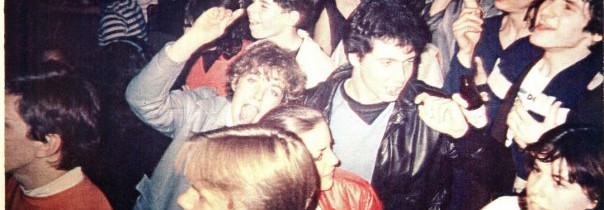RON SUKENICK
I’ve just finished Ron Sukenick‘s book, Down and In:Life in the Underground. It chronicles life in the underground from about 1948 to 1984. This is a great stretch of time to study decline. He works through the many many contradictions and problems of being an American artist, whose desire for fame and fortune, whose PT Barnum side, is constantly at war with his wayward, anarchist, anti-authoritarian, imaginative side. For a little while in the 50s and 60s this dialectic was most fruitful: avant-garde, counter-culture, underground, and pop culture fused. The result was an explosion of popular art and mainstream attention to challenging difficult art. There were consequences for the artists and, especially, for the fellow traveler’s as this also involved a lifestyle without rules, a life of yes, sex, drugs and jazz, then rock’n’roll. The book fits in with some other books I love, Legs McNeil’s Please Kill Me and Patti Smith’s Just Kids and earlier books like The Banquet Years (Roger Shattuck) and The Bride and the Bachelors (Calvin Tomkins) all excellent explorations of Bohemia. In the mid seventies Sukenick started The Fiction Collective, with Steve Katz, Jonathan Baumbach and other writers who found they could not publish with mainstream presses anymore. They were writers who did not have the commercial support of say John Barth, Thomas Pynchon, William Gaddis, and William Gass, writers who produced books everyone says they read but didn’t. The Fiction Collective was created by writers who had retreated into academia. They were not academics, but needed the institutional support of the university both to feed themselves and to publish their work. Sukenick shows how this is part of the institutionalization of the avant-garde. He’s uncomfortable with it. It’s a trap. Government grants, university support, take the place of tenements and coffee houses. It’s a depressing situation, but it gets worse. Because the Fiction Collective, while it was a non-profit, collectivist enterprise, took its place alongside other, older alternative presses. These are almost all gone now, while the Fiction Collective survives, albeit under a different management structure and name, as FC2.
I’m also reading a book I wanted to read because I thought it would make me angry. It hasn’t. It’s depressed me. MFA vs. NYC, which I’ll review when I’m done, shows a literary culture paralyzed by its own failure. The best lack all conviction. Things are as they are. The MFA isn’t the barren wasteland its detractors have called it. It’s a barren wasteland with some nice oases, and anyway, who cares, that’s the way things are. Commercial publishing isn’t the barren wasteland its MFA detractors have called it, it’s a threatened barren wasteland with a few shivering starving endangered species gasping by shrinking sinkholes full of fetid water. But really, there’s nothing to do about it so that’s the way it is, the world is going to hell, oh well.
Sukenick at least is kicking and screaming, trying to create something outside of the relentless drive for maximum profit, resisting all the way. He does so with cynicism and knowledge, not naivete or self-righteousness. He knows he’d sell out, but he can’t bring himself to punctuate a piece he believes needs no punctuation, even if he loses his publisher. My first and only real writing teacher, the poet John Perlman once told me he knew things had changed when his young students didn’t understand what the big deal was with cutting your hair. If they want you to cut it, why not cut it? Well, for some of us the fact that THEY want you to cut it is enough reason not to do so. It has nothing to do with hair, it has everything to do with not knuckling under, with wanting to be free to be and define yourself, and resisting those things you don’t agree with, fit into or think is wrong. I don’t love Sukenick’s fiction, and I’ve always been allergic to the self-consciousness of the meta-novel, but he and his compeers never ceased believing in the possibilities of narrative and narrative art, and they wrote as individuals, out of a creative, imaginative life. Sukenick interview: here. Obit: this article quotes Down and In extensively, and says everything I would say, so why say it? go here!





Hello! Looking forward to an in-depth read of your rich trove of information and comment, above, as well as checking out the materials you reference.
I have derived a lot of sustenance from Otto Rank’s thoughts on art and the artist, that helicopter up to a birds eye level. His work (cited below) is the product of 30 years of thought from a dazzlingly brilliant and iconoclastic man, who dared to break from the inner circle of Freud to follow his own intellectual path (at the personal level, the break caused him years of ostracism, as Freud had thought of him as a virtual “son” and was enraged by the break).
I mentioned “Art and Artist” in a recent essay/comment on a separate matter, and have pasted in below my original observations and a quote from Anais Nin, who wrote the foreword to Rank’s magnum opus. CHEERS – Maureen Murphy
“As a side note, for a brilliant discussion of many of the topics touched on… I recommend most highly Art and Artist: Creative Urge and Personality Development by Otto Rank. Particularly spot-on in relation to David Foster Wallace is Chapter XII, “Success and Fame.†The epic scope and genius of Rank’s master work has never been equaled.”
“…Otto Rank was a poet, a novelist, a playwright, in short a literary man, so that when he examined the creative personality it was not only as a psychologist, but as an artist….â€
Nin, Anais. Foreword. Art and Artist: Creative Urge and Personality Development. Otto Rank. Alfred A. Knopf, Inc., 1932. viii. Print